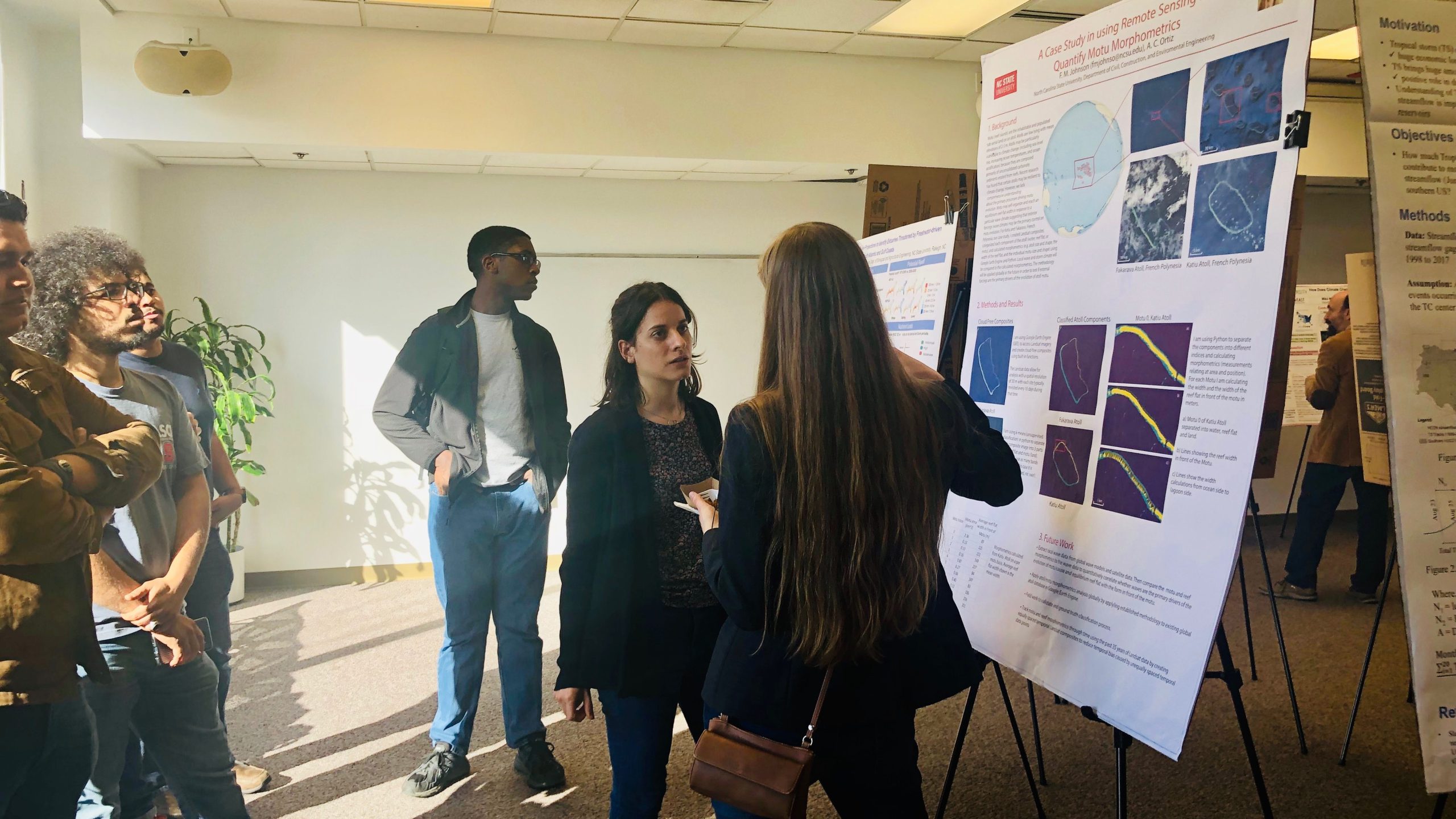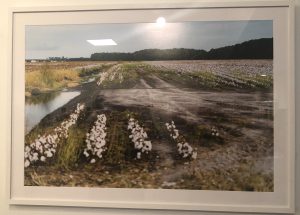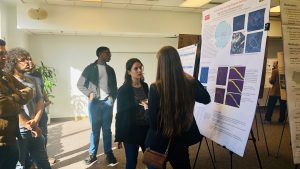A Reflection on RISING: Perspectives of Climate-related Change Along NC’s Coast

On March 28th, 2019, students, professionals, and community members joined together at the NC State African American Cultural Center Art Gallery to experience the grand opening of RISING. This one-of-a-kind exhibit contains a collection of artistic and oral history accounts that reflect how the North Carolina coastal region has changed over time. The traveling exhibition displays these generational stories throughout the state to help all North Carolinians better adapt for a more resilient future. The following event synopsis was written by former Global Change Fellow, Laura Hamon.

For those living on the coast, the impacts of sea level rise on communities and livelihoods are impossible to ignore. In an event organized by the Southeast Climate Adaptation Science Center (SE CASC) and in collaboration with the African American Cultural Center (AACC), artists, researchers, and historians gathered to discuss resiliency in the face of rising sea levels on the southeastern US coast. At the heart of the discussion were the images and stories presented by RISING, an exhibition which shares the changing experiences of those living on the North Carolina coast. The event was the second part of a series on sea level rise organized in part by SE CASC Global Change Fellows.
The event began with a panel discussion moderated by Dr. Matthew Booker, Associate Professor of Environmental History in the Department of History. As part of the discussion, panelists and audience members relayed personal experiences that illustrate the realized effects of sea level rise on coastal lives. Karen Amspacher, Director of the Core Sound Waterfowl Museum & Heritage Center, shared that several generations of her family have adapted to difficult weather conditions on Harkers Island, but sea level rise threatens the future of that connection to the land. Andre Taylor, a graduate student in the Public History Program, explained how saltwater inundation is endangering the traditional agricultural livelihoods of the Gullah/Geechee people.
Environmental disasters do not affect all communities equally, and panel members also discussed how race and class are intersectional with a conversation on resilience. Dr. Blair Kelley, Professor of History and Assistant Dean of Interdisciplinary Studies & International Programs, explained how areas that were prone to flooding were historically often sold to African Americans. Consequently, extreme weather events disproportionately harm black communities, a reality tragically illustrated by Hurricane Katrina.
The fourth panelist, Baxter Miller, is the Principal Investigator and Photographer for RISING. After the panel, attendees took in the sobering beauty of her images and read the oral accounts of those forced to adapt to rising seas. In a simultaneous poster session, attendees also explored student research focusing on climate change and the coast. Refreshments were provided by Ricky Moore of Saltbox Seafood Joint, a Durham restaurant that specializes in North Carolina coastal cuisine.

Together, the panel, exhibition, and poster session demonstrated the accelerating impacts of sea level rise on quality of life for coastal communities. Panelists agreed that adaptation will be messy but essential, and will require collaboration across all disciplines, including environmental science, history, and art.
This event would not have been possible without the exceptional collaboration and sponsorship of:
– Baxter Miller and Ryan Stancil (artists and curators)
– College of Humanities and Social Sciences Interdisciplinary Studies Program
– NC State Office of Interdisciplinary Studies
– North Carolina Sea Grant
– NC State History Department
– NC State Program on Science, Technology, and Society
Interested in attending our upcoming Global Change Seminars? The 2019 – 2020 cohort of Global Change Fellows are in the midst of planning the upcoming Global Change Seminar series, the first of which will be focused on hurricanes. It will be held on September 26th at 3:30pm in 101 David Clark Labs. More information.
- Categories:
